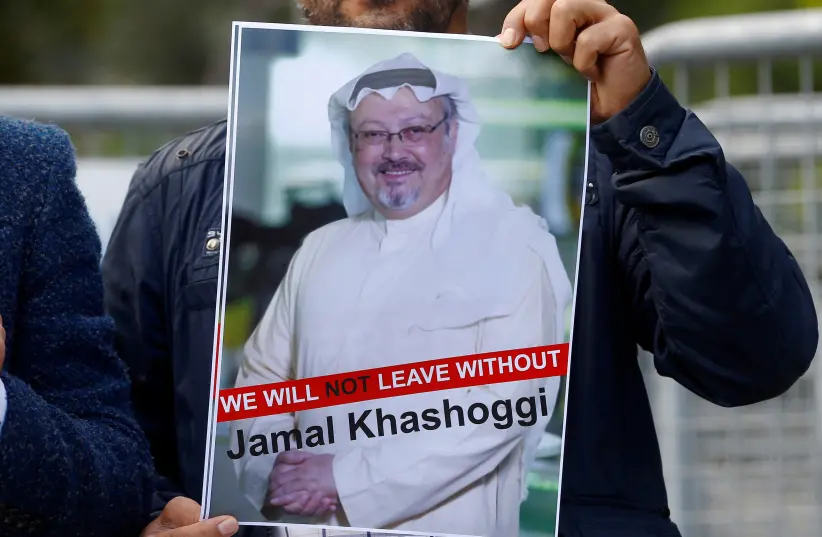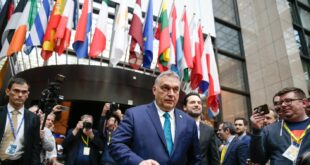Saudi Arabia only received a bit of credit for its reforms that Crown Prince Mohammed Bin Salman announced.
The US decision to release a declassified intelligence report on the murder of former Saudi Arabia insider Jamal Khashoggi could either represent part of the long-term shift in US-Saudi relations or a nadir before a reset.
Ostensibly, the release embarrasses the kingdom. However, like many things relating to how markets and foreign relations perform, this should have been factored in. What this means is that the ire and wrath that was already poured out on Riyadh has been growing for years.
What is actually happening here? It was widely known, or at least suspected to the degree that it becomes a fact, that Riyadh was to blame for the killing of Khashoggi. He disappeared after entering the Saudi Arabia consulate in Istanbul in 2018. When people go into a consulate and don’t come out, that generally means the country disappeared them.
Turkey also used the incident, which it may have had real-time knowledge of or even forewarning about, to push a crisis with Saudi Arabia.
This is because when it comes to the Khashoggi affair, there were many things taking place at the same time. He was killed for being a dissident and for embarrassing the kingdom. As a former insider with deep ties to the country, the fact that he went to Qatar, at the time a kind of arch enemy, and was slamming Saudi Arabia in Western and Turkish media, was a problem for Riyadh.
Khashoggi also had deep ties with the foreign policy and think-tank establishment in the US. There doesn’t seem to have been an influential person he didn’t know. For a Saudi government always sensitive to its image in the West – which has worked hard for decades to make sure that high level former regime insiders don’t turn up as critics abroad – silencing him became a priority.
SAUDI ARABIA’S actions are not historically unusual. The Soviet Union and Russia have hunted down former insider dissidents abroad; so has Turkey.
But Saudi Arabia’s decision to hunt down Khashoggi in Turkey, a NATO member – and to seemingly attack a writer for key Western media – was seen as different than former KGB agents being poisoned in the UK, or Kurdish or Iranian activists being murdered in Austria or Paris.
That is how the region ended up here. The Khashoggi killing was front page news in Turkish and Qatari state media for months, primarily because they wanted to hurt the kingdom’s image in the West, harm its relations with Washington and personally weaken the rising power of Mohammed Bin Salman.
Western media often doesn’t understand how state media works in Ankara or Doha, and also often doesn’t understand how stories are fed to media from those countries, or how Western lobbyists are employed to tar the images of Qatar’s or Turkey’s enemies.
Saudi Arabia in this case walked right into this by killing its dissident and not realizing that this would have a major impact on the West. Turkey, the largest jailer of journalists, was suddenly talking about a murdered journalist.
Khashoggi’s murder was unusual in Turkey because it is usually Ankara crushing journalists or sending groups it backs in Syria to kill critics and activists, like Hevrin Khalaf. Qatar, which has no press freedom, was suddenly talking press freedom.
Khashoggi has become a symbol and martyr in the West. This is particularly true among his many friends and contacts in the US, many of whom had relied on him for details about Saudi Arabia prior to his leaving the country and becoming a dissident. He was one of the chief explainers of the largely opaque kingdom for some Westerners who were interested in Saudi Arabia between the early 1990s and 2018.
THE LARGER picture then of what happened with Saudi Arabia, and some of what may have driven those who ordered the killing of Khashoggi, is that the kingdom felt threatened by rapidly changing landscapes in the Middle East. It’s not hard to understand this. A rising Iran and a US policy that appears to be set on withdrawal from the region are part of this change.
Remember that the US had gone into the region heavily in 1990 to stop Saddam Hussein’s invasion of Kuwait, and that US bases in Saudi Arabia served as the excuse for Bin Laden’s declaration of war on the US.
The US and Saudi Arabia are still key partners. The Trump administration once boasted of securing a $110 billion arms deal with Riyadh in 2018 that could see $450 billion in investments in the US. That was classic Trump-doctrine transactional diplomacy. Washington even sought to have Riyadh invest in eastern Syria, according to some reports.
The billions Trump promised also didn’t materialize, at least not by 2020. Some billions did, but the US may block offensive weapons sales now under the Biden administration.
It’s not clear if Riyadh gambled on Trump in 2017, but what is clear is that any fallout from the Khashoggi killing in 2018 should have been factored in by now. Qatar and Saudi Arabia appeared to patch things up as a kind of new page for the new US administration.
Talk of Saudi Arabia and Israel moving forward on certain issues has been in the air for years as well. Prime Minister Benjamin Netanyahu reportedly flew to Saudi Arabia in November 2020 and Riyadh opened airspace for Israeli flights to Dubai. Riyadh also supported the new Abraham Accords.
ven back in 2018, reports in media claimed, with no evidence, that Saudi Arabia was interested in acquiring Israeli air defense systems.
THE US rupture in relations with Riyadh is part of a larger process. It is also part of a larger regional context. America has problems with Turkey as well, as Ankara becomes more anti-Western, closer to Russia and more extreme and authoritarian.
Biden and his administration have promised that “America is back” and that they will root US policies in human rights. This puts them potentially at odds with all US friends, partners and allies in the Middle East, because when it comes to human rights issues, the US has a lot of complaints against Saudi Arabia, Turkey, Israel, Egypt Jordan and the Kurdistan region in Iraq.
America doesn’t always voice these concerns. Since it can’t be left without any friends in the region – and isn’t doing Cold War style diplomacy anymore, preferring dictators to democrats, and is trying to get beyond the 1990s and 2000s era of policies – it may find that it needs a reset with Saudi Arabia sooner rather than later.
For that to happen, the administration appears to have now wanted to lay out on the table what it knows and to show it will punish some of those involved. Will it go beyond this? That’s the question being asked now in the Gulf, Israel and elsewhere.
 Eurasia Press & News
Eurasia Press & News




